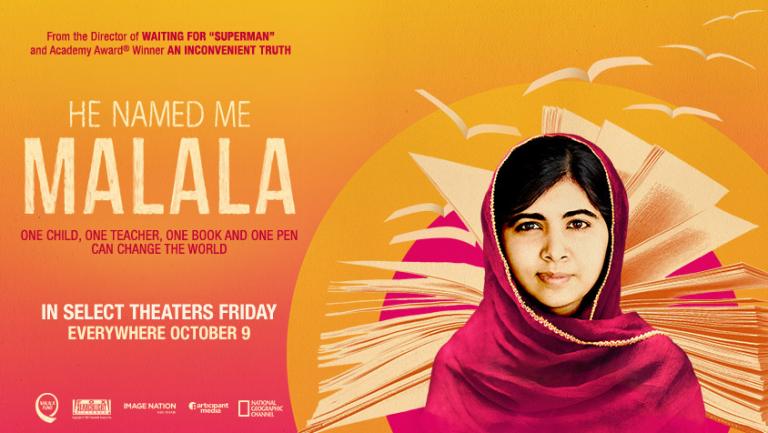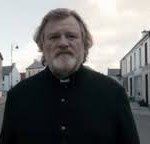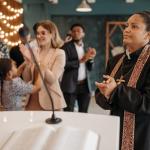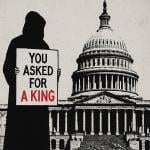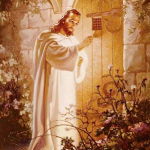Last week, I had a chance to talk with actor Brendan Gleeson and writer/director John Michael McDonagh about their brilliant new film Calvary, which releases in the U.S. on Friday, Aug. 1.
Calvary is one of those rare films that confronts the beauty and the faults of the Church without flinching. It follows the life of a small town Irish priest named Fr. James Lavelle (Brendan Gleeson) after a parishioner threatens his life in the confessional. The potential murderer gives Fr. James a week to put his affairs in order, and the film is fascinating portrait of a priest going about his week under the threat of murder.
It’s an extremely black comedy. I laughed and I was shocked. But mostly it made me think and reflect about life and about my own vocation as a priest — for weeks afterwards. This is a film that’s meant to be discussed. So, even though I’ll post my own review of the film later this week, I wanted to share my own conversation with Brendan and John Michael. (There are content warnings surrounding abuse and suicide — themes within the film itself — and there are a few spoilers.)
If you aren’t familiar with the film, check out the trailer above. You can listen to the interview as you read it. Mark and I talk about the film a bit and then at the 10:35 mark the interview begins.
DH: I’m curious was there anything for you as you were filming this or even as you were watching the completed film that you were particularly proud of or that was particularly revelatory for you personally, in playing Fr. James Lavelle?
Brendan Gleeson: For me it was the absorption of other people’s pain, I think, was far more taxing even if it’s done by proxy. I’m an actor. I’m not actually Fr. James, so you kind of think there is a kind of protection there. But even at that distance, to take on other people’s (pain), if you care and don’t remain detached, if you don’t have even a professional detachment and you care about the people that you’re engaged with and you cannot do it without breaking at some point, you cannot absorb other people’s pain and expect that you have a bottomless well of optimism and of being able to cope with it. I knew that was true but to feel it in the making of a film in this way was an eye-opener.
John Michael McDonagh: For me as a writer and director, there were two sequences right in the middle of the film, the sequence with Brendan and Kelly Riley, where she’s in the confessional with him, which is a very moving but also philosophically dark scene and, in the script, it was followed by the scene with Brendan and Domnhall Gleeson when he visits him in prison. When you’re writing a script, that seems fine, it feels like two good scenes in a row but the powerful performances made those sequences so heavy and so strong that to have one followed by another it was almost too disturbing for the movie to take. So it led to me shifting those scenes around in the editing so that was a learning process for me the way performances can alter the way you edit a movie just because of pacing and because of the heaviness and the emotive nature of the sequences.
DH: That scene in the confessional, I’m glad you brought that up, because that’s such a powerful scene, even how you’ve edited it. That’s with his daughter, Fiona, correct? And when she’s talking about suicide, I actually appreciated and loved the idea of dealing with suicide and framing it in terms of questioning Jesus’ own relationship to his own Calvary and the cross and to suicide. I was hoping you could talk about this. This (film) is part of what’s been called your suicide trilogy and I’ve read interviews where you have different opinions on this, and I was wondering if you could talk about that line between willing to die for something and going willing to your own death as a form of suicide. Could you guys talk about that in the context of the movie?
JMM: I’ve had this discussion with Brendan. In the Guard, I believe that Gerry Boyle is going to his death. But Brendan, I don’t know if he’s changed his mind, but Brendan when we were talking about it in the script stage, he believes that Gerry Boyle thinks he’s going to survive. In this film, we both believe that Fr. James is not expecting to die. He knows it may happen, so for him it’s not a suicide or thing that’s in his mind. You could say with Jesus Christ, that for him to pay for the sins of others, he had to die, so he knows he’s going to his death. But maybe Fr. James also has this subconsciously that he knows he may well have to die to take everything onboard.
BG: Yeah, eternal optimism is kind of my curse in life.
JMM: I’ve tried to crush to that.
(Laughs)
BG: He’s getting closer to defeating it after this film. I actually don’t believe it was a suicidal impulse in what James did. I don’t think he wanted to do it. The fact that he fled almost to the point of getting onto the plane. There was an aspect of that that had to do with being the removal of an occasion of sin. If he removed himself, then perhaps a murder might not happen. And he was physically afraid, and then to turn around and then to understand the notion that confronting something. The confrontation was partially to make amends for what people have done in his name. One of the great strengths of the movie is the notion that abuse is a life sentence. It’s not just something that can be tossed off and so “get on with it, it’s something in the past.” (Rather) It’s something very real that keeps on. I think part of him feels that he has to try to fix or atone for that and that hopefully leads to where a person would not see the need to go ahead with it. So I do think the suicidal thing with Jesus who knew he was for definite going to his death is a more intricate question. But for me I don’t think he (Fr. James) did feel suicidal at that moment. I think he was dealing with the renewal of his relationship with his daughter and particularly having forgiven each other over the phone. I think he had a lot to live for, really.
JMM: And he does have the dialogue with (the character) on the cliff base before he gets to beach where he says, “I’ll speak to you later.” So he’s hoping he won’t die, but he’s prepared to accept it.
DH: And he’s still talking with Chris O’Dowd (Jack Brennan) on the beach, trying to talk him out of it, so I totally get that.
JMM: That’s a good point. Even when he’s been shot, he’s still trying to talk the character down.
BG: And tell him, ‘It’s not too late. It’s never too late.’
DH: That’s one of the things I really loved about your film. It’s a really dark film and it deals with really hard questions, but it refuses to offer any easy answers, both for the characters in the film and the audience who’s watching it. I was curious. You have these characters that surround this priest and they are asking a lot of really profound questions about the state of the church, about who God is, the nature of God and the nature of faith. Those are hard questions that I think a lot of us wrestle with. And it’s really rare to see those in film, dealt with so honestly. Did you have hesitation at all in being that confrontive and even provocative with deal with some of those things.
JMM: Back in the ‘60s, people like Bergman were dealing with these issues all the time and it’s kind of all been lost now. I just felt if we are going to do an original movie and a follow up to The Guard that people won’t be expecting, then let’s make a movie like this that hasn’t come out in awhile — something that does deal with all this philosophical and spiritual issues that we deal with every day of our lives but it’s never shown in a movie anymore. Those guys in the 60s, these were films coming out every week that were dealing with these kinds of subjects but it all seems to have gone away. As a pragmatic thing, I thought if we make a movie like that it will seem unusual when it is released.
BG: And it has to be entertaining. You can understand people not wishing to risk a box office disaster because you are driving away people who are really in search of escapism. I think the reaction to this film has been interesting in that way, because it shows that if it’s skillfully written and it’s properly addressed with the audience in mind, with a view to entertaining the audience and keeping them interested and keeping them hooked in, then people will go where you wish to bring them. They will go there. They want to. There was a definitely feeling of things being aired and people being grateful for the chance to actually address it when the film screened in Ireland and in Britain. The messages we’re getting back from people are very personal, and it was by way of saying, it took a little bit to get them through the film. It’s a demanding film. But they were never forgotten. They were always kept hopefully enthralled to what the next turn of events would be. It is unusual in film, but it’s there for a reason. It takes a lot of skill, from start to finish, that the thing will come together and keep people entertained. Otherwise because people really don’t want a lecture or a discussion. They want to go to the movies.
DH: And there is something cathartic, too, about seeing these issues dealt with so frankly and without really pulling any punches. So there’s a cathartic element to it as well that as you’re talking about, they are out in the open and seeing the light of day.
BG: Yeah, and there was no agenda. We weren’t trying to push any one viewpoint over the other, except perhaps that forgiveness in these things need to be readdressed and something very important needs to be restated.
JMM: We don’t try to propagandize for one viewpoint over another. What I was intending with the film is that somebody that has a deeply religious viewpoint should get something out of this movie and come away from it enjoying the movie and contrarily somebody who is an atheist should get something out of the movie and come away from it. Someone with deeply spiritual beliefs and an atheist have a lot in common because they have tried to think through the issues. They come to different decisions about it, but at least they’ve thought it through.
DH: I couldn’t agree more with that. And as I’m watching your film, I kept seeing these moments where I’m going, “This would make a terrific jumping off point for an adult Sunday school forum because you are talking about and wrestling with these issues.” So there’s a lot of profound moments in this film, and that’s a credit to both the writing and the acting.
JMM & BG: Thanks, thanks a lot.
DH: One of the other things I wanted to talk about is the relationship with his daughter. That’s an unusual aspect for a Roman Catholic priest, especially in a film. But also, there seems to be an emotional core that surrounds their relationship and there is some redemption that happens throughout their relationship. I wonder if you can talk about how that relationship came to be in the writing process.
JMM: It turned out that that relationship sort of had a three-act structure within itself as sort of a separate part of the movie. I sent Brendan an early draft of the script and it had those scenes tehre but they weren’t as expanded upon and they weren’t as emotional as they became. Brendan was encouraging me to get away from the detachment. I have a tendency to be a detached ironic writer, and that is what I was deliberately trying to get away from in this movie. That led on to two scenes. The confessional scene with Kelly Riley. That wasn’t initially there in the first draft, I don’t believe. I was thinking there needs to be another scene in the confessional because we only have that one in the beginning. And Brendan says, “Why don’t we have Kelly confess all of her feelings toward her father in that scene where she’s talking to her father as her literal father and her father as her confessor.” It also led to that final phone call. That wasn’t originally there. I’ve been thinking he should phone someone if he’s got it in the back of his mind that he might die, who would he call? He’d call his daughter. And that led to the big forgiveness is highly underrated line of dialogue. And that came out basically from those initial discussions. It was implied in the script but they weren’t literally there written in the script.
BG: The main difference between the two of them, and particularly when Kelly came on-board was that they were incredibly close. I knew it from the reading of it … but the feeling when Kelly walked in the door was that she was very, very clear that she wanted this character to be her father’s daughter. From the off, it became where the sense of humor was really the key to it, that they could make each other smile even in the most horrific scenarios. John’s dialogue was such that to even address something like you’re supposed to cut down instead of across — awful concepts — but their shared sense of humor was the key to opening doors to get back to where they had been before they lost sight of each other. It was an evolving thing through the writing and then when Kelly became a part of it. It was quite easy to be Kelly’s soulmate in a way. The whole notion of forgiveness and all of that quest, it just became an organic thing.
JMM: And what’s interesting about Kelly’s performance is that she can play fragility as well as psychological strength, within the same scene sometimes. So you sense this slightly broken person but somebody who also has the reserves and strength above and beyond that. In that final shot, we see that she is her father’s daughter in a way. She is psychologically strong enough to move on and take strength from what’s happened to him and to face up to the killer and be stronger than the killer.
DH: Even her wardrobe change kind of evokes her father in that final scene, and it’s brilliant final scene.
JMM: Yeah, it’s the moment of grace that concludes the film.
DH: I wanted to close with a question for Brendan about the kind of preparation you took to embody Fr. James, because, as hyperbolic as some of the scenes with his parishioners are, they were uncannily accurate in some of things I’ve experienced and friends of mine have experienced. Did you do any kind of preparation with priests?
BG: Well, I mean I grew up in Ireland. And that’s a start. Then I was a teacher for 10 years. And I’ve been married for about 30-something years. So all of those allowed me to listen with a certain amount of pain. There was nothing specifically. I’ve met enough enough good people to know how much they can mean. I did my best with it so it’s good to hear.
JMM: It’s interesting you say about interactions with your parishioners because particularly in Ireland some of the reviews said these kinds of people don’t exist. From my point of view, they do if you go out into the world and actually experience something about life. That these eccentricities and these characters exist in every town and every part of the world.
DH: Absolutely. If they don’t exist over in the UK, they certainly do over here in America.
(Laughs)
JMM: Ah, thanks for that!








